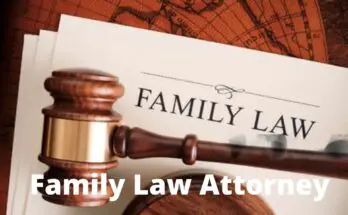Introduction
It is a difficult ordeal to lose a loved one as a result of someone else’s neglect. Survivors may file a wrongful death lawsuit to hold those responsible for the disaster legally liable as a result of their subsequent feelings of grief, hatred, and perplexity.
These legal actions can give the bereaved family members financial support, even though they cannot undo the loss or impose criminal penalties. This comprehensive book explores the complexities surrounding wrongful death claims, providing insight into important areas such as eligibility, case types, damages, and court procedures.
Read Also: Offshore Accident Attorney | Offshore Injury Lawyer 2024
What Is About Wrongful Death?
A tragic consequence of a legal duty not being fulfilled is wrongful death. A wrongful death lawsuit can be filed by the deceased person’s representative or surviving family members.
It requires evidence of intentional misconduct or negligence, a clear causal connection between the death and the injury, and related damages. A court may award compensation in successful cases, or the at fault party or their insurer may negotiate for a settlement.
Who May File a Wrongful Death Lawsuit?
The majority of state laws restrict wrongful death lawsuits to members of the immediate family, which includes parents, children, and surviving spouses. The qualifications may differ from those for persons who are deemed heirs by a state’s intestacy laws or under a will.
Beneficiaries who are not family members are not allowed to file, but the personal representative may do so on behalf of the estate of the deceased, with damages being awarded by state or will law.
Personal Injury VS Wrongful Death Lawsuits:
While they are similar to personal injury lawsuits, wrongful death claims are distinct in that they are filed after a deadly accident. In contrast to personal injury claims, which aim to compensate the plaintiff for losses they have suffered.
Wrongful death cases seek damages for the deceased’s medical expenditures, agony and suffering, funeral expenses, and loss of future earnings and companionship.
Types of Wrongful Death
Since they need proof of wrongdoing, wrongful death lawsuits frequently come after or in addition to personal injury cases. Wrongful death cases can result from a variety of situations, including criminal trials, car accidents, workplace mishaps, product liability, and medical negligence.
Due to the nature of certain circumstances, the victim may have to pass away within a certain amount of time following the accident.

Who May File a Wrongful Death Lawsuit?
If they have anything to do with the deadly incident, almost anybody can be sued for wrongful death. Defendants may include at-fault drivers, producers of faulty goods, suppliers of alcohol to intoxicated drivers, organizations neglecting to alert consumers to product hazards, constructors of bad roads, and negligent medical practitioners.
A knowledgeable lawyer can shed light on possible defendants in a wrongful death case.
Damages for Wrongful Death:
As civil lawsuits, wrongful death claims do not result in criminal guilt but rather in monetary compensation for the surviving parties. In addition to non-economic losses like consortium loss, parental loss, and mental suffering, damages may also include economic losses like lost wages, medical bills, and burial fees.
Punitive damages are uncommon, but a wrongful death lawyer can explain state-specific laws.
How to Bring a Lawsuit for Wrongful Death:
If you suspect that a loved one’s death was caused by negligence, you must act quickly. By following jurisdiction specific processes, a wrongful death case can be filed and discussions with the liable parties who are frequently represented by their insurance companies can begin.
Cases that are not settled go to court, and accepting a settlement means giving up any rights you may have in the future. Having a wrongful death attorney on your side can help you through the legal system’s maze of complexity.
Choosing a Lawyer for Wrongful Death:
Even though few wrongful death cases end up in court, having an experienced attorney at your side can be very helpful when negotiating settlements. These experts make sure that the mourning family’s grieving rights are upheld and that the legal process is started on time.

The Way to Win a Wrongful Death Lawsuit:
To prevail in a wrongful death lawsuit, one must establish several components of negligence, such as the defendant’s duty of care, breach of duty, causal relationship to the death, and incurred damages.
The chances of success are increased by working with an experienced attorney and filing within the statute of limitations.
Compensation & Settlements for Wrongful Deaths:
The specifics of each case determine the amount of compensation for wrongful death. Depending on the terms of the agreements reached with the at-fault parties or the insurers, settlements may take the form of lump amounts or installment payments.
If these settlements are intended to cover costs, suffering, or lost wages, they are typically not subject to taxation. For clarification, speaking with a tax expert is advised.
In a Wrongful Death Suit, Who Pays?
After wrongful death lawsuits, insurance companies usually pay damages, such as the other driver’s motor insurance after an automobile accident. The defendant may be held personally liable for all or part of the damages in situations where they lack insurance or when the insurance amount is insufficient.
Claims against possible defendants can be pursued with the assistance of an expert lawyer.
Wrongful Death Lawsuit FAQs:
Frequently asked concerns concerning wrongful death cases in Tennessee are answered, such as who is eligible to bring a claim, how difficult it is to prove wrongful death, and how settlement amounts are calculated using both non-economic and economic losses.
This in-depth manual seeks to shed light on the complex world of wrongful death claims, offering a helpful tool for anybody looking for justice after suffering a terrible loss. It is highly advised that you speak with a knowledgeable personal injury lawyer for tailored advice and legal assistance.



